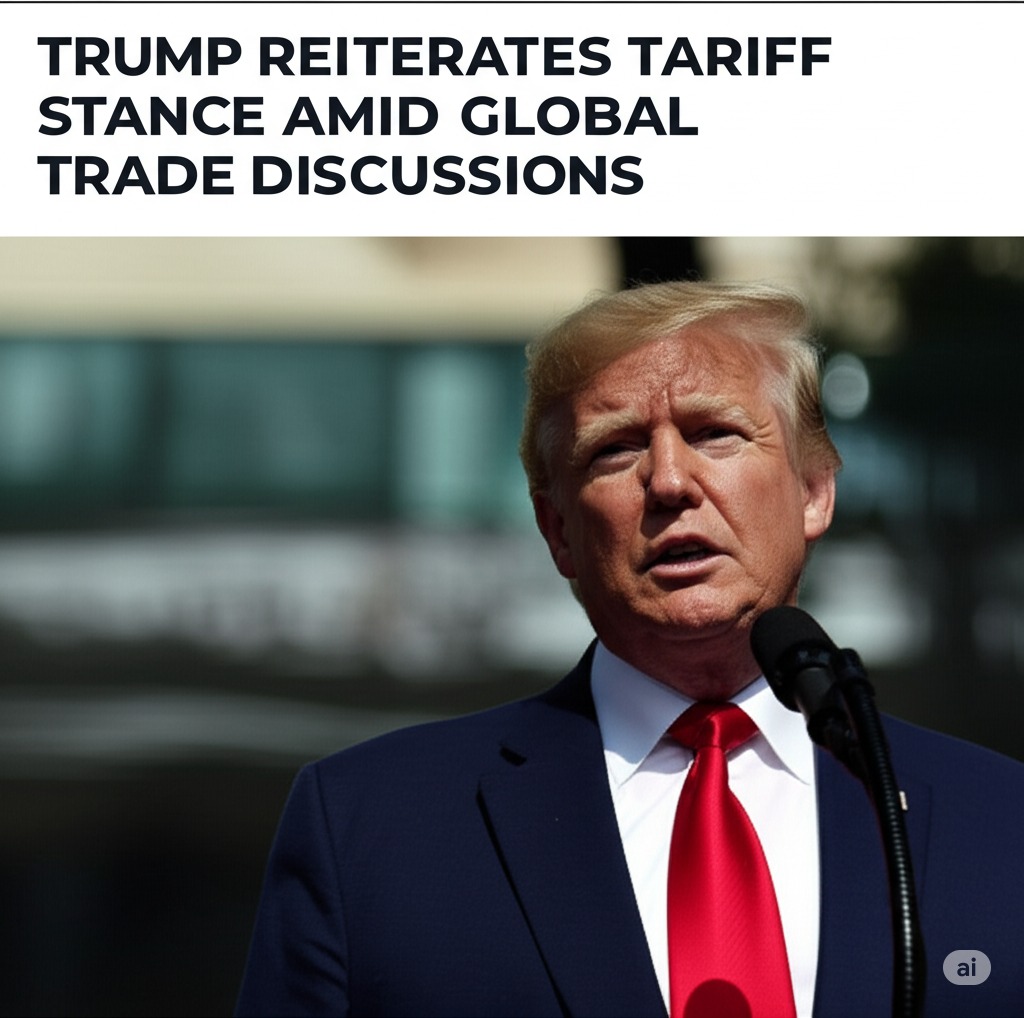Trump Reiterates Tariff Stance Amid Global Trade Discussions
Published on May 24, 2025 | Generated by AI
 🤖 AI-generated Image
🤖 AI-generated Image
Why It Matters
Recent statements from former US President Donald Trump regarding potential tariffs on goods manufactured abroad and his views on companies shifting production overseas have brought the future of global trade policy back into focus. These comments, particularly those directed at Apple and the prospect of increased manufacturing in countries like India, carry significant economic and political weight, affecting multinational corporations and international trade relations. His remarks signal a potential return to protectionist trade policies if he were to seek and win the US presidency again, raising questions about global supply chains and market access.
Background & Timeline
During his previous presidency, Donald Trump pursued an "America First" trade agenda, characterized by the imposition of tariffs on various imported goods, most notably from China. This policy aimed to protect American industries and encourage domestic manufacturing. His administration engaged in significant trade disputes, leading to reciprocal tariffs from affected countries. While these actions were met with mixed results and considerable debate among economists, they fundamentally altered the global trade landscape and highlighted the potential for political rhetoric to directly impact international commerce and corporate investment decisions.
What’s Happening Now
- May 13, 2025: Former US President Donald Trump claimed that India had agreed to reduce its tariffs to "nothing," a statement that has not been officially confirmed by the Indian government.
- May 15, 2025: Donald Trump reportedly told Apple CEO Tim Cook that he did not want him "building in India," reiterating his preference for companies to manufacture within the United States.
- May 17, 2025: Donald Trump cautioned Apple about potential 25% tariffs on iPhones manufactured outside the US, specifically mentioning India as a manufacturing location that could be subject to such duties.
- May 24, 2025: External Affairs Minister S. Jaishankar affirmed India's commitment to bilateral talks with Pakistan focused on terrorism and the return of Pakistan-Occupied Kashmir, while also addressing economic matters, implying trade was not part of these discussions, which indirectly refutes claims of broad trade deals being contingent on other issues.
- May 24, 2025: Donald Trump raised concerns over potential tax advantages for Apple shifting manufacturing to India, suggesting this could disadvantage US-based companies like Samsung.
What Could Happen Next
-
1. Resumption of Broad Tariffs: Should Donald Trump return to office, he could reinstitute and potentially expand the use of tariffs on goods manufactured abroad. This would likely lead to retaliatory tariffs from affected nations, disrupting global supply chains and potentially increasing costs for consumers. Companies that have shifted manufacturing overseas, including those in the technology sector like Apple, could face increased pressure to move production back to the US or incur significant tariff-related costs.
2. Targeted Pressure on Offshore Manufacturing: A potential approach could involve applying targeted pressure, possibly through tariffs or other punitive measures, on specific companies or sectors that manufacture heavily overseas, particularly in countries perceived as not having reciprocal trade benefits with the US. This could directly impact companies like Apple with significant manufacturing operations in countries like India, forcing them to re-evaluate their production strategies and potentially invest more heavily in US-based manufacturing.
3. Trade Deals Contingent on Manufacturing Location: Future trade negotiations under a Trump administration might include conditions explicitly linking market access or tariff reductions to companies increasing their manufacturing presence within the United States. This would fundamentally alter the nature of trade agreements, prioritizing domestic job creation and industrial output over traditional free trade principles, and could create friction with trading partners who view such conditions as protectionist barriers.
This article is generated using AI-assisted summaries and verified timelines.
